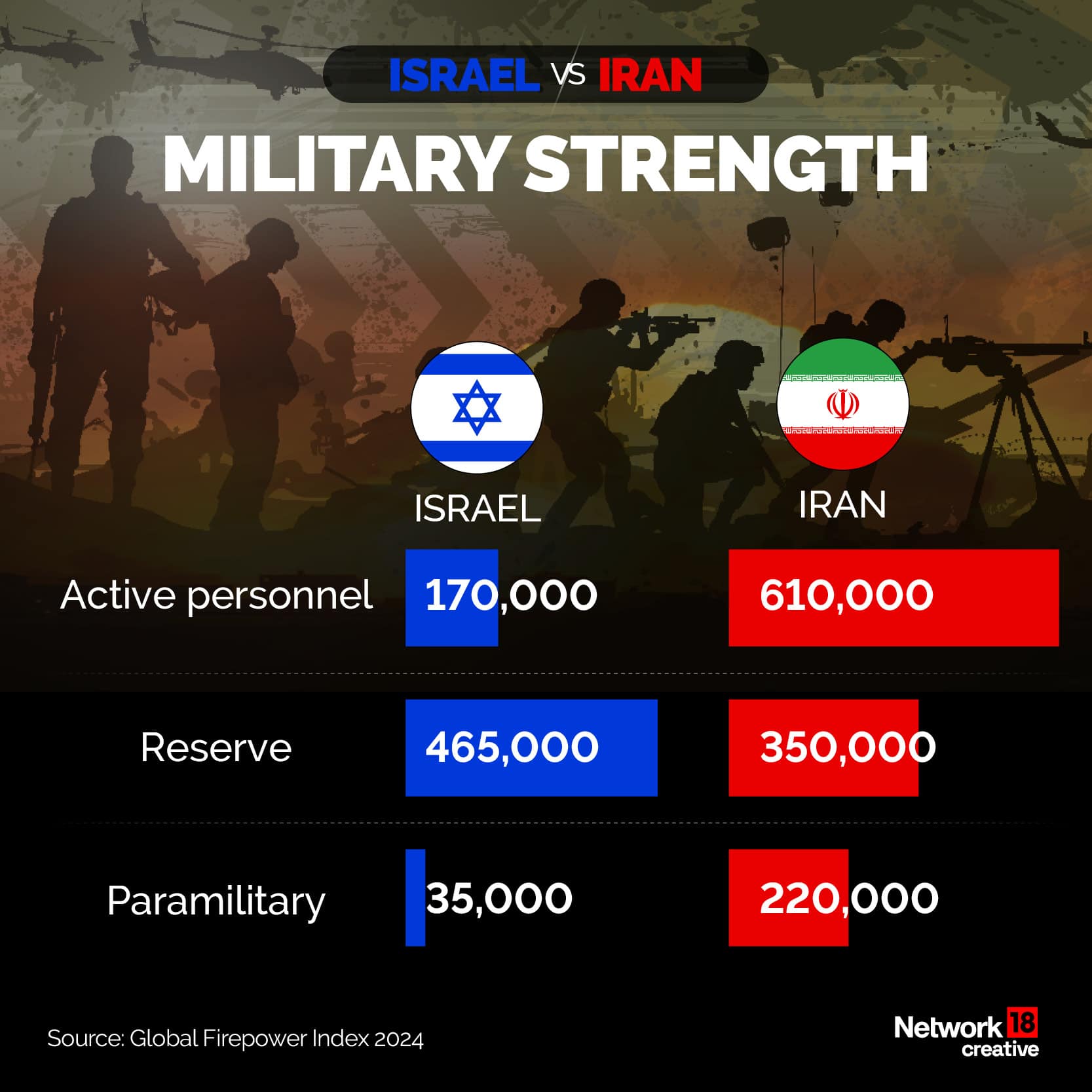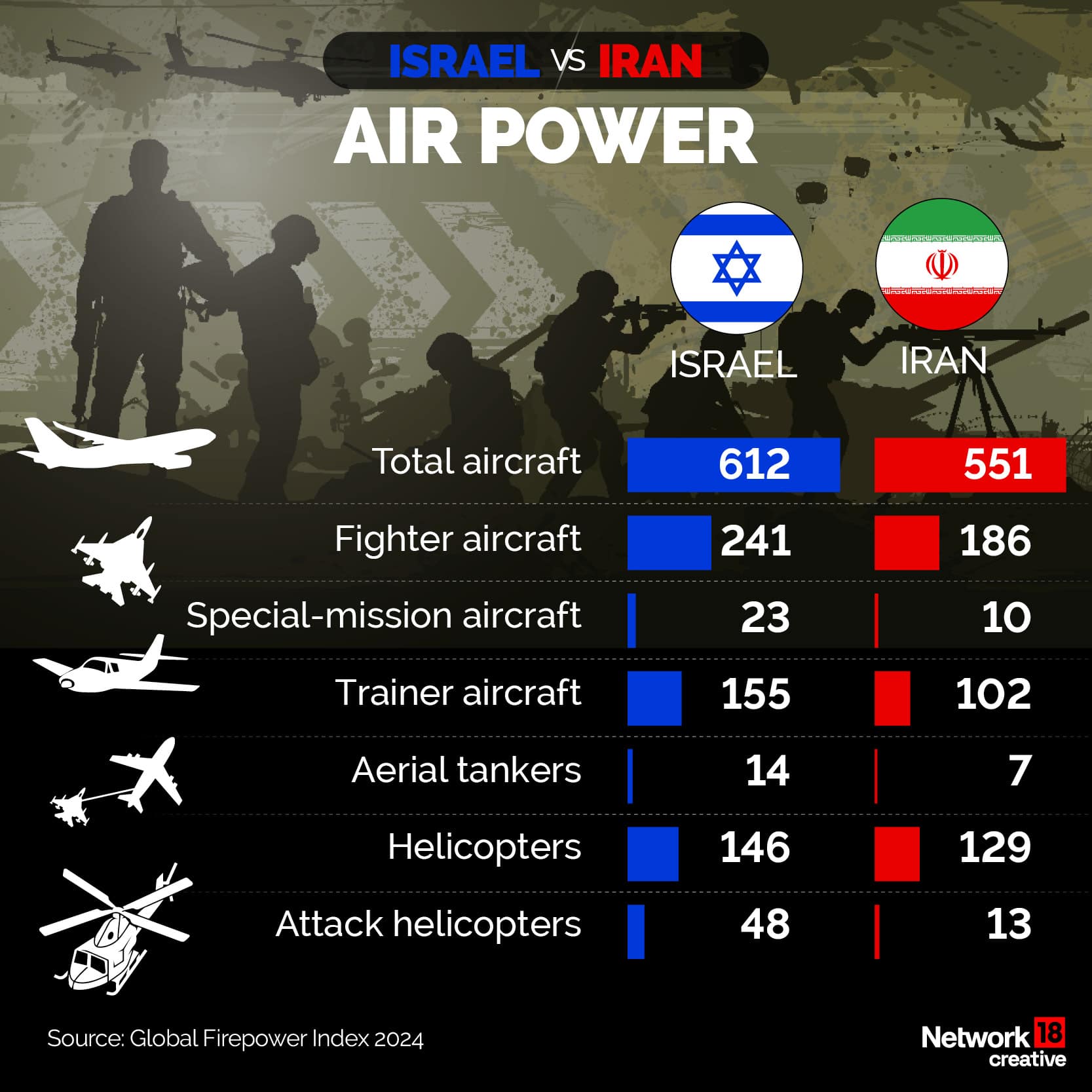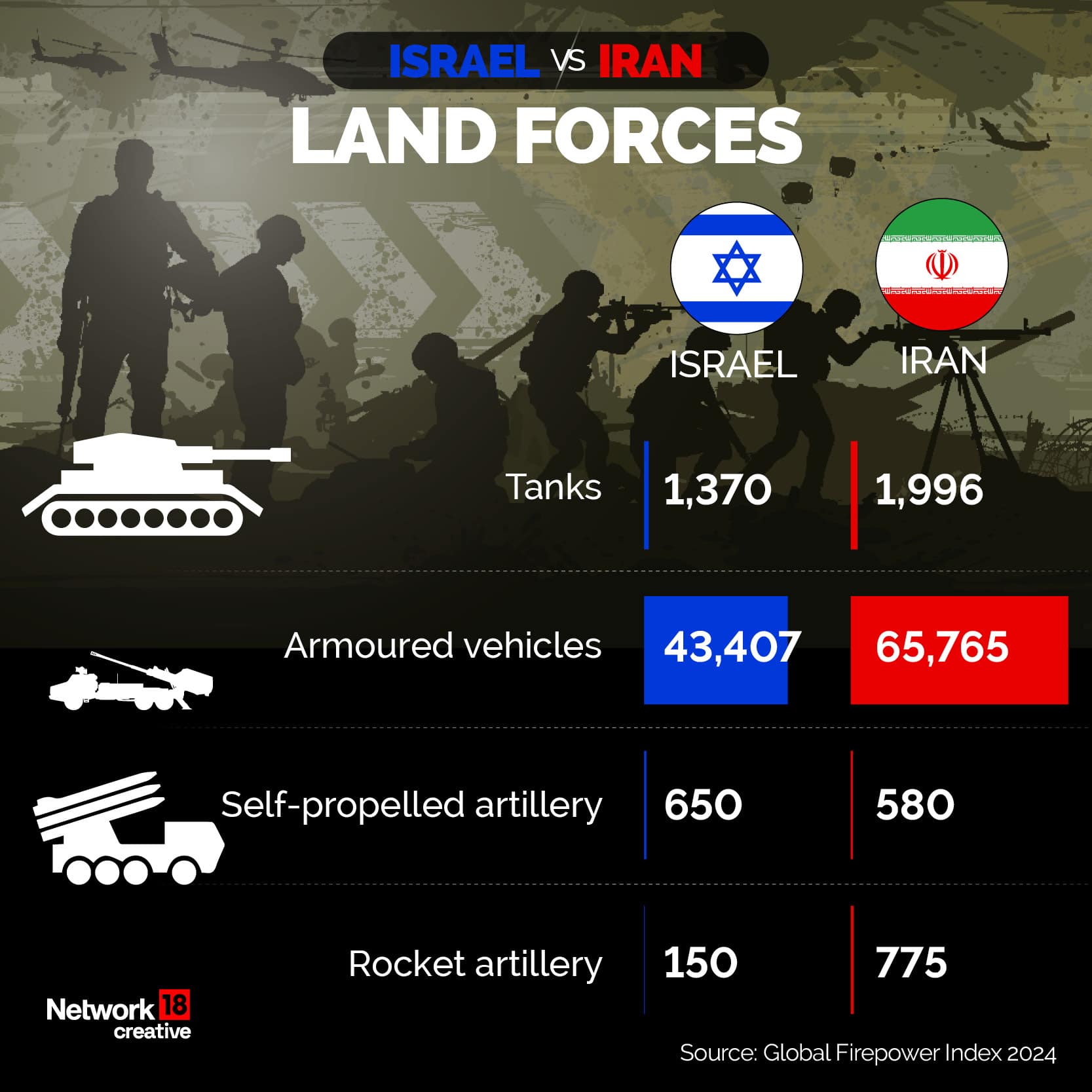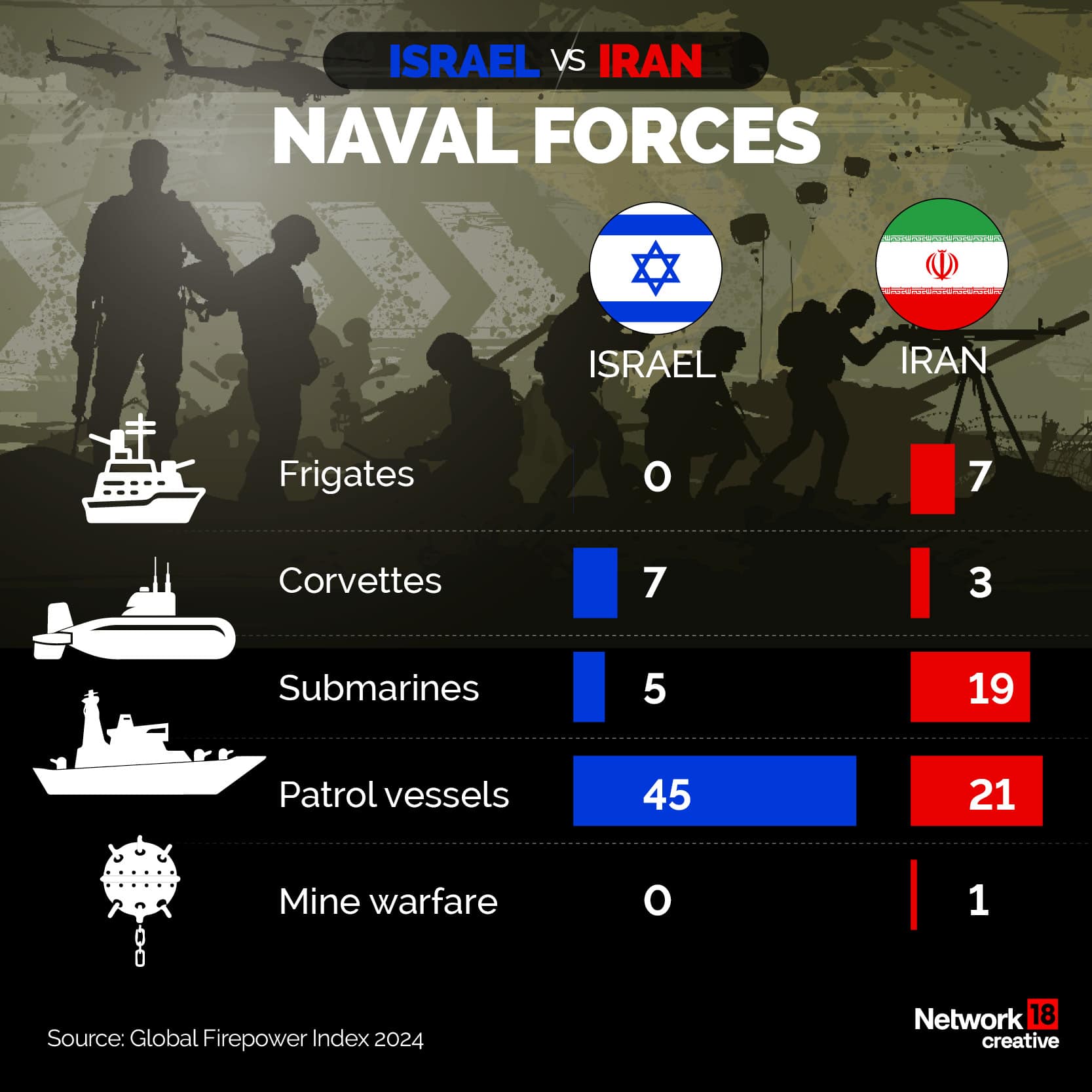



Iran launched its largest attack on Israel on October 1, firing 180 ballistic missiles, the majority of which were intercepted by anti-missile defences from Israel, the US, and Jordan. This further flares up the worsening situation in the Middle East, following a similar assault by Iran in April. Israel has responded by issuing a stern warning to Iran, asserting that it would "pay" for the attack, while Iran threatened to retaliate with an even larger strike if targeted.
Will Iran-Israel tensions flare up further? Catch live updates here.
In light of these developments, here's a comparative analysis of the military capabilities of Israel and Iran:
Military strength
Israel has a total of 170,000 active personnel, supported by 465,000 reserves and 35,000 paramilitary forces. Iran, meanwhile, has a much larger military presence, with 610,000 active personnel, 350,000 reservists, and 220,000 paramilitary forces.

Air power
Regarding aerial capabilities, Israel operates 612 aircraft, including 241 fighter jets and 146 helicopters, with 48 classified as attack helicopters. On the contrary, Iran has a total of 551 aircraft, comprising 186 fighter jets and 129 helicopters, of which 13 are designated as attack helicopters. Notably, Israel's air power includes 23 special-mission aircraft, enhancing its operational flexibility.

Land forces
In the land forces category, Israel maintains 1,370 tanks and 43,407 armored vehicles, in addition to 650 self-propelled artillery units and 150 rocket artillery systems. Iran, however, surpasses Israel in tank numbers, operating 1,996 tanks and a larger fleet of 65,765 armored vehicles. Israel, meanwhile, has an edge in self-propelled artillery, with 580 units over Iran's 775 rocket artillery systems.

Naval capabilities
Israel's naval capabilities are relatively limited, with no frigates and five submarines, along with seven corvettes and 45 patrol vessels. In comparison, Iran has seven frigates and three submarines, along with 19 patrol vessels and one mine warfare vessel, showcasing a stronger naval presence in the region.

Recent developments
Following Iran's latest missile offensive, Israeli Prime Minister Benjamin Netanyahu condemned the action, asserting that Iran "made a big mistake" and will face repercussions.
As per Iran's Revolutionary Guards, the missile strike is retaliation for recent Israeli actions, including the killing of Hezbollah chief Hassan Nasrallah.
The UN has called for an immediate ceasefire as both nations brace for potential further confrontations, raising serious concerns about regional instability.
Discover the latest Business News, Sensex, and Nifty updates. Obtain Personal Finance insights, tax queries, and expert opinions on Moneycontrol or download the Moneycontrol App to stay updated!